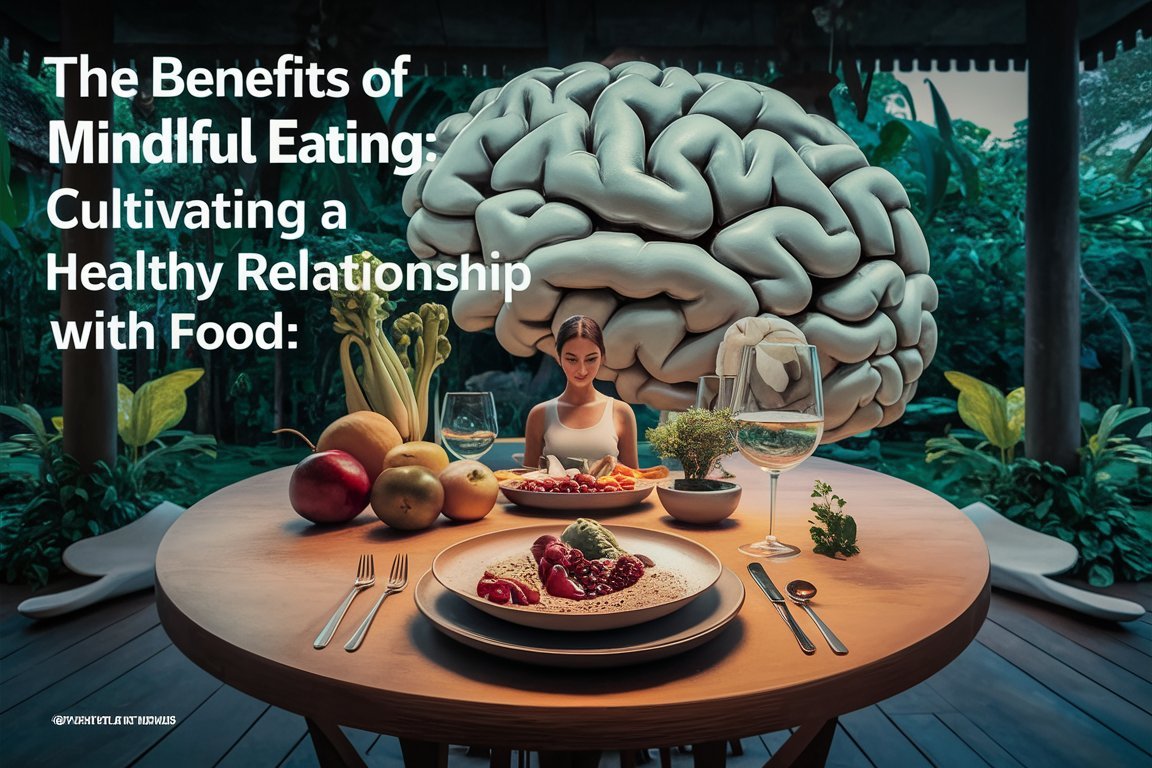s of Mindful Eating: Cultivating a Healthy Relationship with Food
Hey there, my young and curious friends of 2024! It’s your mindful eating guide from the past, Nita Sharda, here to take you on a fun and fascinating journey into the world of mindful eating – the secret to building a happy, healthy relationship with food!
Now, I know that the words “mindful eating” might sound a little strange or even boring at first, like something only grown-ups or yoga teachers talk about. But trust me, once you understand what mindful eating is and how it can help you feel your best, both in your body and in your mind, you’ll be excited to give it a try!
So, are you ready to become a mindful eating explorer and learn about all the amazing benefits of tuning in to your food and your body? Let’s dive in!
What is Mindful Eating?
First things first, let’s talk about what we mean when we say “mindful eating.” Mindful eating is all about paying attention to your food and your body while you eat, using all of your senses to fully experience and enjoy your meals and snacks.
It’s about slowing down, tuning in, and really savoring your food, instead of rushing through meals or eating on autopilot while you’re doing other things like watching TV or playing video games.
Mindful eating is also about listening to your body’s natural hunger and fullness cues, and learning to trust and respect those cues to guide your eating habits. It’s about eating when you’re truly hungry, stopping when you’re comfortably full, and choosing foods that make you feel good, both physically and mentally.
Why is Mindful Eating Important?
So, why is mindful eating so important, especially for kids and teens like you? Well, there are lots of reasons! Here are just a few:
1. Mindful Eating Can Help You Develop a Positive Relationship with Food
When you practice mindful eating, you learn to see food as nourishment and enjoyment, rather than something to feel guilty or anxious about. You learn to trust your body’s natural wisdom and to make food choices based on what feels good and what fuels you, rather than what you think you “should” or “shouldn’t” eat.
This positive relationship with food can help you feel more confident and relaxed around eating, and can set you up for a lifetime of healthy, happy eating habits.
2. Mindful Eating Can Help You Tune In to Your Body’s Needs
Mindful eating is all about listening to your body’s natural hunger and fullness signals, and learning to trust those signals to guide your eating habits. When you eat mindfully, you become more attuned to your body’s needs and more able to respond to them in a way that feels good.

For example, you might notice that you feel really hungry and need a substantial meal, or you might notice that you’re only a little hungry and need just a small snack. You might also notice how different foods make you feel – for example, maybe you feel energized and focused after eating a balanced meal with plenty of fruits and veggies, but sluggish and cranky after eating a lot of junk food.
By tuning in to these signals and responding to them mindfully, you can help your body get the nourishment it needs to feel its best.
3. Mindful Eating Can Help You Enjoy Your Food More
When you eat mindfully, you take the time to really savor and enjoy your food, using all of your senses to fully experience each bite. You might notice the bright colors and beautiful presentation of your meal, the delicious smells wafting up from your plate, the interesting textures and flavors of each ingredient, and the satisfying feeling of nourishment and pleasure that comes with eating.
By slowing down and fully engaging with your food in this way, you can actually enjoy your meals more and feel more satisfied and content after eating. You might even discover new favorite foods or flavor combinations that you never noticed before!
4. Mindful Eating Can Help You Manage Your Emotions
Mindful eating can also be a great tool for managing big emotions like stress, anxiety, or sadness. When we’re feeling upset or overwhelmed, it’s common to turn to food for comfort or distraction, even when we’re not really hungry. This is called emotional eating, and while it’s totally normal and okay to do sometimes, it can become a problem if it’s our only coping strategy.
Mindful eating can help us become more aware of our emotional eating patterns and find other ways to cope with big feelings, like talking to a friend, doing something creative, or moving our bodies in a way that feels good. It can also help us learn to eat in response to our physical hunger rather than our emotions, which can lead to more balanced and nourishing eating habits overall.
5. Mindful Eating Can Help You Appreciate and Respect Your Body
Finally, mindful eating can be a powerful tool for cultivating appreciation, respect, and kindness towards your amazing body. When you eat mindfully, you’re sending a message to yourself that you deserve to be nourished and cared for, and that your body’s needs and desires are important and worthy of attention.
This kind of self-care and self-respect can have big ripple effects in other areas of your life, helping you feel more confident, capable, and worthy, both inside and out. And when you feel good about yourself and your body, you’re more likely to make choices that support your overall health and happiness, like moving in ways that feel good, getting enough rest and relaxation, and surrounding yourself with people and activities that bring you joy.
How to Practice Mindful Eating
Okay, so now that we know why mindful eating is so important and beneficial, let’s talk about how to actually do it! Here are some tips and tricks for getting started with mindful eating:
1. Slow Down and Take Your Time
One of the key principles of mindful eating is slowing down and taking your time with your meals and snacks. Instead of rushing through your food or eating on the go, try to sit down at a table and give yourself plenty of time to enjoy your food without distractions like TV, phones, or computers.
You might also try putting your fork down between bites, chewing each bite thoroughly, and pausing to take a few deep breaths before starting your meal. These simple practices can help you slow down, tune in, and really savor your food.
2. Engage All Your Senses
Another important aspect of mindful eating is engaging all of your senses while you eat. This means taking the time to really look at your food, noticing the colors, shapes, and textures on your plate. It means taking a deep inhale and savoring the delicious smells wafting up from your meal. It means paying attention to the flavors and textures of each bite, noticing how they change and evolve as you chew.
You might even try closing your eyes for a few bites and really focusing on the sensations of eating, or taking a moment to appreciate and express gratitude for the food in front of you before digging in.
3. Check In with Your Hunger and Fullness
Mindful eating is all about tuning in to your body’s natural hunger and fullness signals, and learning to trust and respect those signals to guide your eating habits. Before you start eating, take a moment to check in with your body and ask yourself how hungry you really are. Are you physically hungry, with a growling stomach and low energy? Or are you eating for other reasons, like boredom, stress, or habit?
As you eat, continue to check in with your body and notice how your hunger and fullness levels change. You might try rating your hunger on a scale of 1 to 10, with 1 being absolutely starving and 10 being uncomfortably stuffed. Aim to start eating when you’re around a 3 or 4 (moderately hungry) and stop when you’re around a 6 or 7 (comfortably satisfied, but not overly full).
4. Choose Foods That Nourish and Satisfy You
Mindful eating is about more than just how you eat – it’s also about what you eat. When you’re practicing mindful eating, try to choose foods that both nourish your body and satisfy your taste buds. This might mean filling your plate with plenty of colorful fruits and veggies, whole grains, lean proteins, and healthy fats, while also including some of your favorite treats and comfort foods in moderation.
The key is to tune in to how different foods make you feel, both physically and mentally, and to choose foods that leave you feeling energized, focused, and happy. And remember, there’s no one “perfect” way to eat – what works for one person might not work for another, so it’s all about finding what feels good and balanced for you.
5. Practice Self-Compassion and Non-Judgment
Finally, one of the most important aspects of mindful eating is practicing self-compassion and non-judgment. This means being kind and understanding.













4 Comments